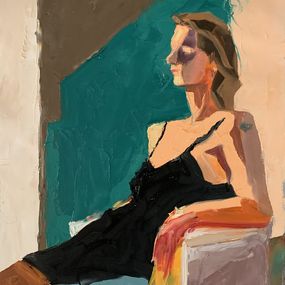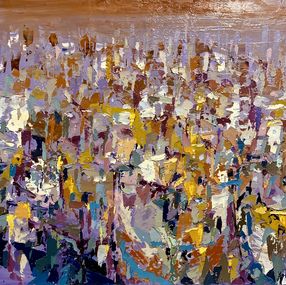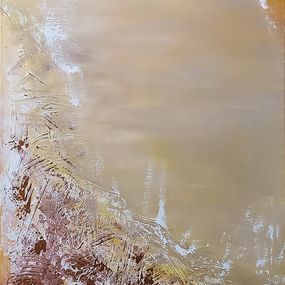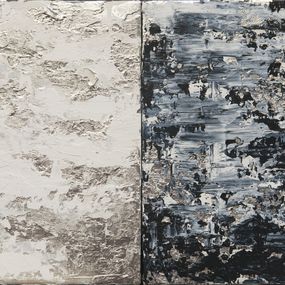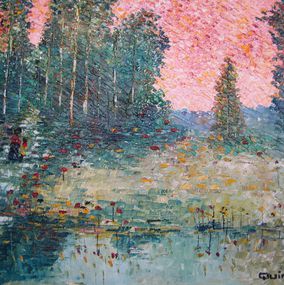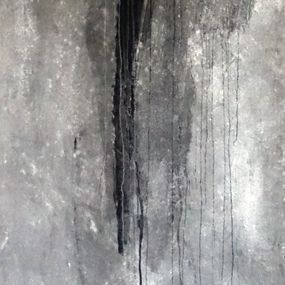
Palette knife painting for Sale
The painting knife, or palette knife, as it is often called, has been a part of painters' tools for many centuries. Originally, it wasn't used to apply paint or to produce impastos but to mix pigments, to superimpose one layer of paint over another to modify it appearance or to remove excess paint from the canvas. Consisting of a curved handle and a flexible steel blade, its shape is comparable to that of a small trowel. It was during the Renaissance that the palette knife began to be used for something other than its original purpose and that artists started to use it to paint. Before that, painters sought to create a realistic and therefore smooth result. But artists such as Rembrandt, Titian or Fragonard noticed that scraping paint to create impasto helped to create eye-catching texture, relief and light.
Gustave Courbet is well-known for having brought palette knives back into fashion in the 19th century, a pivotal period when the art of painting, and art in general, underwent many changes and transformations. He was followed by the Impressionists and the modern painters (Monet, Van Gogh, Turner, etc) who used it to create thick impastos. Impressionists were particularly keen on this tool which was well-suited to the way in which they sought to represent light realistically, as our eyes see it. The invention of the easel and paint tubes allowed them to leave their workshops and to paint outside, enabling them to depict the shimmering reflections of water and the ever changing nature. They applied paint quickly in small thin strokes on the canvas and created texture using the knife. To create this effect, they used oil paint and acrylic, working them as little as possible so as to ensure their thick, dense appearance.
On Artsper, find works by Richard Dubure, Martta Weg and Ryan Hewett who all use the palette knife in unique ways in their practice!
Save your search and find it in your favorites
Save your search to find it quickly
Saved search
Your search is accessible from the favorites tab > My favorite searches
Unsaved search
A problem occurred



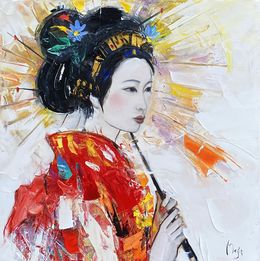

la place du theatre BORDEAUX
Louis Magre
Painting - 50 x 100 x 3 cm Painting - 19.7 x 39.4 x 1.2 inch
Sold
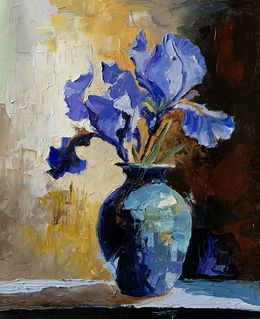
Blue Purple irises in a vase
Schagen Vita
Painting - 50 x 40 x 1 cm Painting - 19.7 x 15.7 x 0.4 inch
Sold
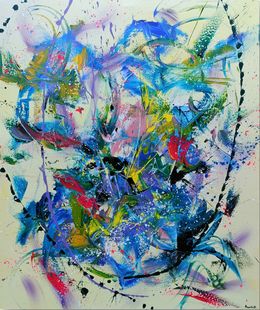
Wonderful moment
Davide Angelillo
Painting - 120 x 100 x 2 cm Painting - 47.2 x 39.4 x 0.8 inch
Sold
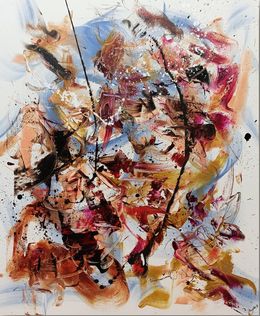

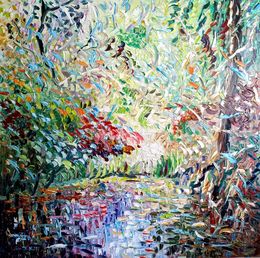
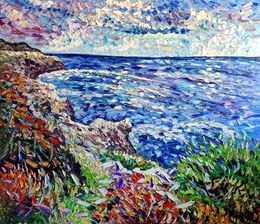
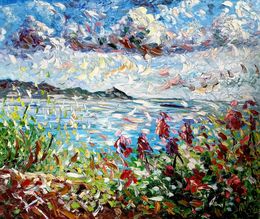
Vento con Rossi
Antonino Puliafico
Painting - 130 x 154 x 1 cm Painting - 51.2 x 60.6 x 0.4 inch
Sold

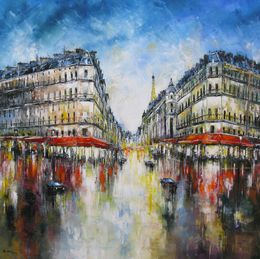
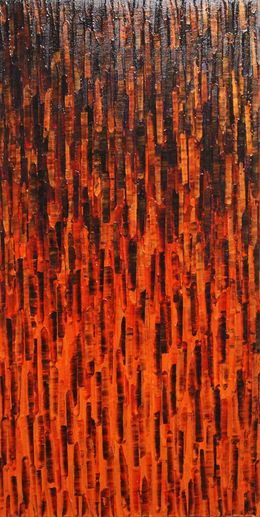
Matrice orange rouge
Jonathan Pradillon
Painting - 80 x 40 x 4 cm Painting - 31.5 x 15.7 x 1.6 inch
Sold
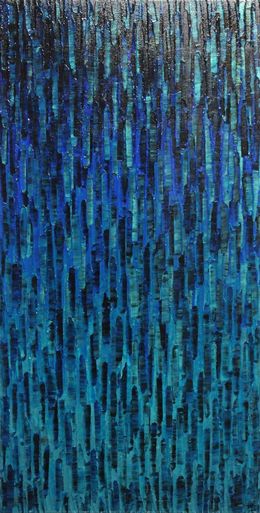
Matrice bleue sombre
Jonathan Pradillon
Painting - 80 x 40 x 4 cm Painting - 31.5 x 15.7 x 1.6 inch
Sold

Butterfly effect
Davide Angelillo
Painting - 150 x 100 x 2 cm Painting - 59.1 x 39.4 x 0.8 inch
Sold
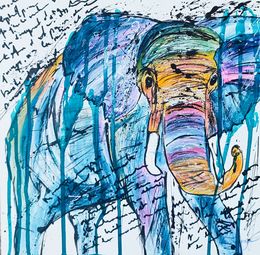

Jardin des songes, éclats d'émeraude
Agnès Tiollier
Painting - 92 x 73 x 0.25 cm Painting - 36.2 x 28.7 x 0.1 inch
Sold



Grand éclat couleur bleu iridescent
Jonathan Pradillon
Painting - 80 x 80 x 1.5 cm Painting - 31.5 x 31.5 x 0.6 inch
Sold
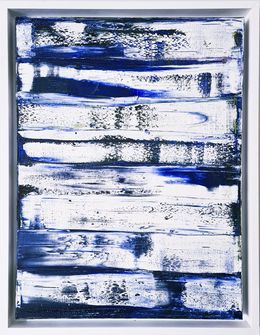
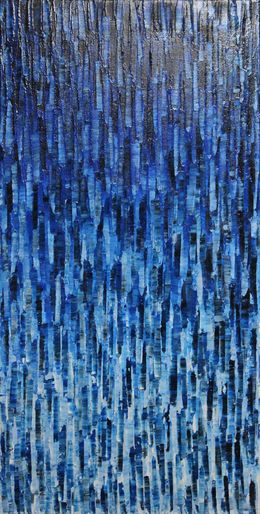

Fondu noir blanc
Jonathan Pradillon
Painting - 73 x 54 x 2 cm Painting - 28.7 x 21.3 x 0.8 inch
Sold
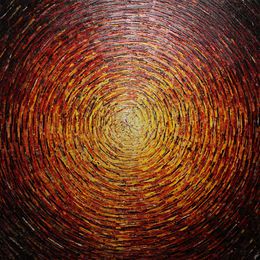
Grand éclat couleurs jaune orange rouge
Jonathan Pradillon
Painting - 80 x 80 x 1.5 cm Painting - 31.5 x 31.5 x 0.6 inch
Sold
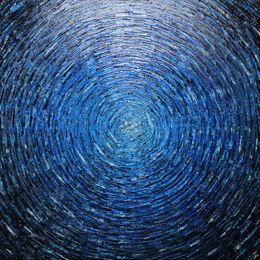
Grand éclat couleurs blanc bleu
Jonathan Pradillon
Painting - 80 x 80 x 1.5 cm Painting - 31.5 x 31.5 x 0.6 inch
Sold

Grand éclat couleurs or orange violet iridescent
Jonathan Pradillon
Painting - 80 x 80 x 1.5 cm Painting - 31.5 x 31.5 x 0.6 inch
Sold
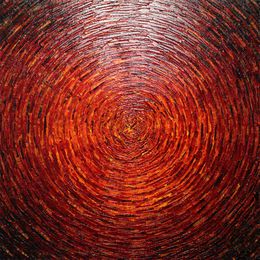
Grand éclat couleurs jaune orange rouge magenta
Jonathan Pradillon
Painting - 80 x 80 x 1.5 cm Painting - 31.5 x 31.5 x 0.6 inch
Sold

Fondu doré orange rose iridescent
Jonathan Pradillon
Painting - 73 x 54 x 2 cm Painting - 28.7 x 21.3 x 0.8 inch
Sold
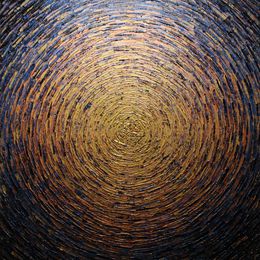
Grand éclat couleurs or cuivre
Jonathan Pradillon
Painting - 80 x 80 x 1.5 cm Painting - 31.5 x 31.5 x 0.6 inch
Sold
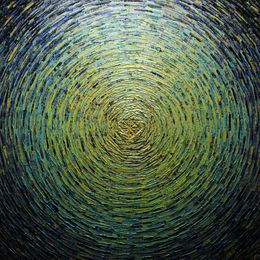
Grand éclat couleurs or vert bleu iridescent
Jonathan Pradillon
Painting - 80 x 80 x 1.5 cm Painting - 31.5 x 31.5 x 0.6 inch
Sold

Grand éclat couleurs doré rose violet
Jonathan Pradillon
Painting - 80 x 80 x 1.5 cm Painting - 31.5 x 31.5 x 0.6 inch
Sold

Fondu blanc rose
Jonathan Pradillon
Painting - 73 x 54 x 2 cm Painting - 28.7 x 21.3 x 0.8 inch
Sold
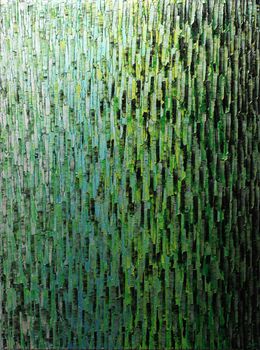
Fondu blanc argenté bleu vert
Jonathan Pradillon
Painting - 73 x 54 x 2 cm Painting - 28.7 x 21.3 x 0.8 inch
Sold

Fondu orange rouge violet
Jonathan Pradillon
Painting - 73 x 54 x 2 cm Painting - 28.7 x 21.3 x 0.8 inch
Sold
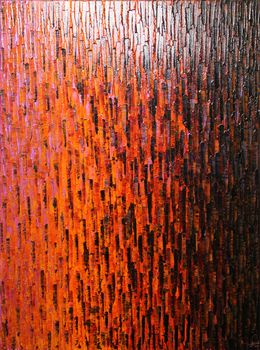
Fondu rose orange violet
Jonathan Pradillon
Painting - 73 x 54 x 2 cm Painting - 28.7 x 21.3 x 0.8 inch
Sold

Fondu blanc vert
Jonathan Pradillon
Painting - 73 x 54 x 2 cm Painting - 28.7 x 21.3 x 0.8 inch
Sold

Fondu doré bronze
Jonathan Pradillon
Painting - 73 x 54 x 2 cm Painting - 28.7 x 21.3 x 0.8 inch
Sold
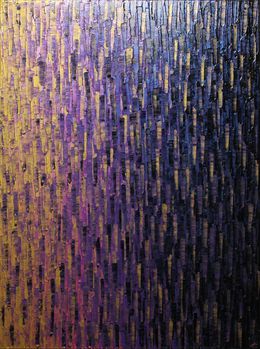
Fondu doré violet gris iridescent
Jonathan Pradillon
Painting - 73 x 54 x 2 cm Painting - 28.7 x 21.3 x 0.8 inch
Sold

Fondu or vert bleu iridescent
Jonathan Pradillon
Painting - 73 x 54 x 2 cm Painting - 28.7 x 21.3 x 0.8 inch
Sold

Fondu doré rouge gris iridescent
Jonathan Pradillon
Painting - 73 x 54 x 2 cm Painting - 28.7 x 21.3 x 0.8 inch
Sold

Fondu bleu violet iridescent
Jonathan Pradillon
Painting - 73 x 54 x 2 cm Painting - 28.7 x 21.3 x 0.8 inch
Sold

Fondu chaleureux
Jonathan Pradillon
Painting - 73 x 54 x 2 cm Painting - 28.7 x 21.3 x 0.8 inch
Sold
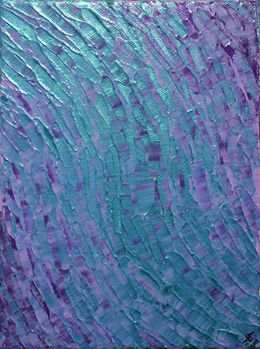
Mouvement texture / Bleu Violet
Jonathan Pradillon
Painting - 24 x 18 x 1.5 cm Painting - 9.4 x 7.1 x 0.6 inch
Sold
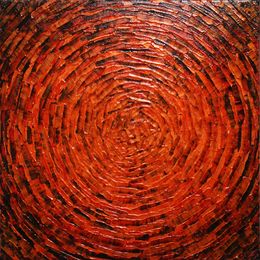
Éclat concentrique orange rouge
Jonathan Pradillon
Painting - 30 x 30 x 1.5 cm Painting - 11.8 x 11.8 x 0.6 inch
Sold
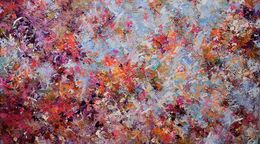

Grand éclat couleurs doré rouge graphite
Jonathan Pradillon
Painting - 80 x 80 x 1.5 cm Painting - 31.5 x 31.5 x 0.6 inch
Sold

Fondu orange violet
Jonathan Pradillon
Painting - 73 x 54 x 2 cm Painting - 28.7 x 21.3 x 0.8 inch
Sold

Fondu bleu iridescent violet
Jonathan Pradillon
Painting - 73 x 54 x 2 cm Painting - 28.7 x 21.3 x 0.8 inch
Sold
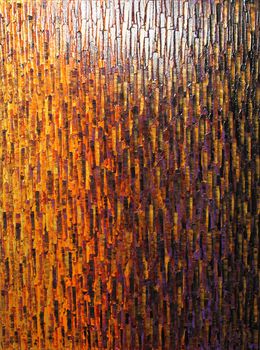
Fondu doré orange violet
Jonathan Pradillon
Painting - 73 x 54 x 2 cm Painting - 28.7 x 21.3 x 0.8 inch
Sold

Fondu rose violet iridescent
Jonathan Pradillon
Painting - 73 x 54 x 2 cm Painting - 28.7 x 21.3 x 0.8 inch
Sold

Fondu or rouge violet
Jonathan Pradillon
Painting - 73 x 54 x 2 cm Painting - 28.7 x 21.3 x 0.8 inch
Sold


Quarts d’éclats colorés série 1
Jonathan Pradillon
Painting - 61 x 49 x 1.5 cm Painting - 24 x 19.3 x 0.6 inch
Sold

Mouvement texture série 1
Jonathan Pradillon
Painting - 49 x 37 x 1.5 cm Painting - 19.3 x 14.6 x 0.6 inch
Sold

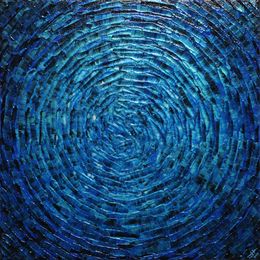
Éclat concentrique bleu perlé
Jonathan Pradillon
Painting - 30 x 30 x 1.5 cm Painting - 11.8 x 11.8 x 0.6 inch
Sold
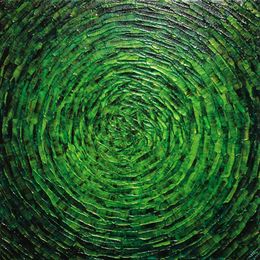
Éclat concentrique vert lumineux
Jonathan Pradillon
Painting - 30 x 30 x 1.5 cm Painting - 11.8 x 11.8 x 0.6 inch
Sold
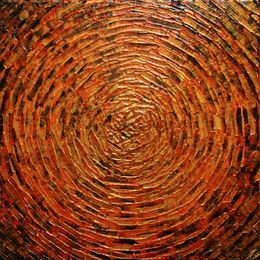
Éclat concentrique or chaleureux
Jonathan Pradillon
Painting - 30 x 30 x 1.5 cm Painting - 11.8 x 11.8 x 0.6 inch
Sold



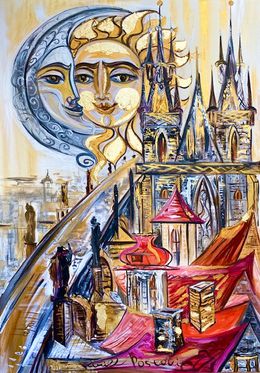
On The Sunny Side Of The Moon Path
Kirill Postovit
Painting - 100 x 70 x 2 cm Painting - 39.4 x 27.6 x 0.8 inch
Sold

Les bateaux se rejoignent
Âme Sauvage
Painting - 40 x 40 x 2 cm Painting - 15.7 x 15.7 x 0.8 inch
Sold

Les Favelas accrochées aux Montagnes
José Perez Hernandez
Painting - 70 x 50 x 3 cm Painting - 27.6 x 19.7 x 1.2 inch
Sold

Femme Bionic entre deux monde
José Perez Hernandez
Painting - 50 x 70 x 1 cm Painting - 19.7 x 27.6 x 0.4 inch
Sold
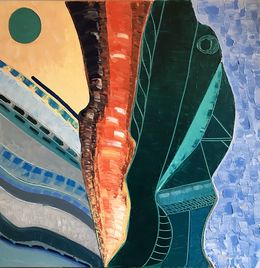
Totem et Nostalgie
José Perez Hernandez
Painting - 70 x 70 x 3 cm Painting - 27.6 x 27.6 x 1.2 inch
Sold

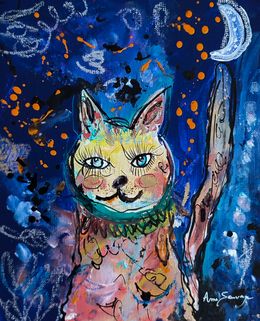
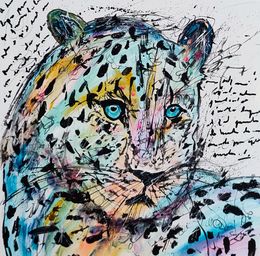


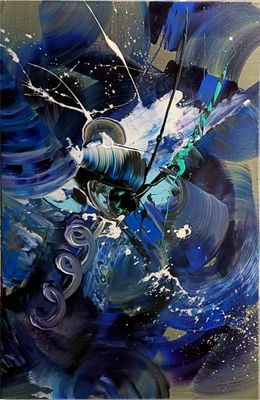

Les deux monts sur la mer
Âme Sauvage
Painting - 30 x 30 x 0.3 cm Painting - 11.8 x 11.8 x 0.1 inch
Sold

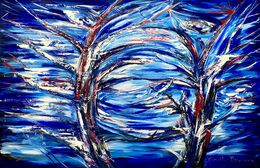

L'arbre en fleurs, la beauté de l'instant
Âme Sauvage
Painting - 30 x 30 x 0.3 cm Painting - 11.8 x 11.8 x 0.1 inch
Sold
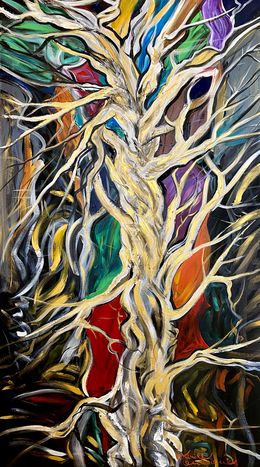
In The Forest Of A Dream
Kirill Postovit
Painting - 160 x 90 x 2 cm Painting - 63 x 35.4 x 0.8 inch
Sold
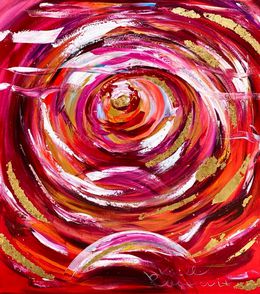

Après la classe
Jean-Pierre Douchez
Painting - 60 x 81 x 3 cm Painting - 23.6 x 31.9 x 1.2 inch
Sold


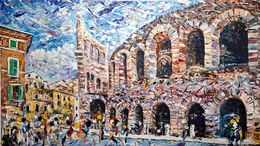
Lumen in Saecula Veronae
Antonino Puliafico
Painting - 160 x 280 x 4 cm Painting - 63 x 110.2 x 1.6 inch
Sold
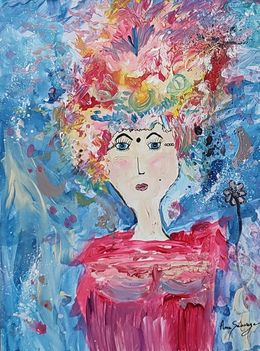
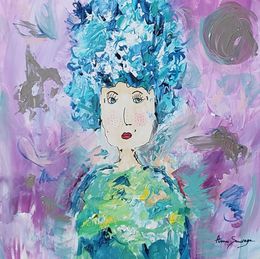

Éclaté de couleur rose rouge
Jonathan Pradillon
Painting - 30 x 30 x 1.5 cm Painting - 11.8 x 11.8 x 0.6 inch
Sold
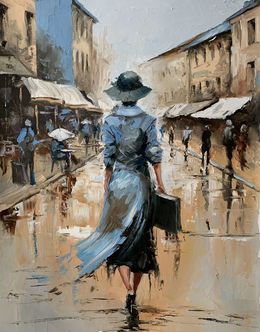

Fondu nuance noir blanc
Jonathan Pradillon
Painting - 61 x 50 x 1.5 cm Painting - 24 x 19.7 x 0.6 inch
Sold
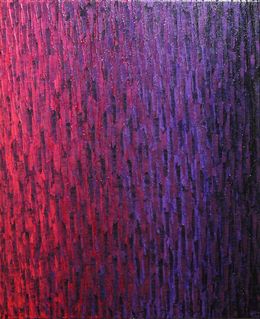
Fondu couleur magenta violet
Jonathan Pradillon
Painting - 61 x 50 x 1.5 cm Painting - 24 x 19.7 x 0.6 inch
Sold
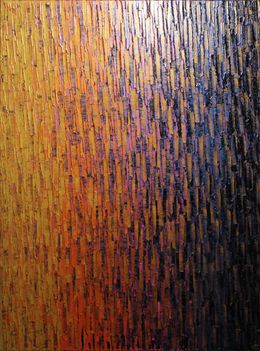
Fondu Or Orange Rose Iridescent
Jonathan Pradillon
Painting - 73 x 54 x 2 cm Painting - 28.7 x 21.3 x 0.8 inch
Sold
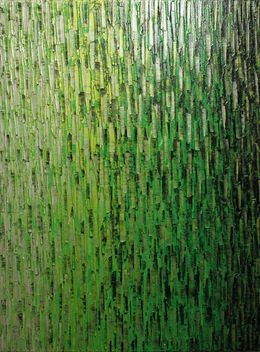
Fondu Blanc Argenté Vert Noir Iridescent
Jonathan Pradillon
Painting - 73 x 54 x 2 cm Painting - 28.7 x 21.3 x 0.8 inch
Sold
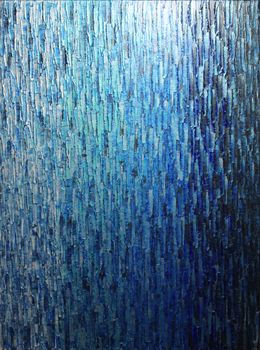
Fondu blanc argenté bleu noir iridescent
Jonathan Pradillon
Painting - 73 x 54 x 2 cm Painting - 28.7 x 21.3 x 0.8 inch
Sold

